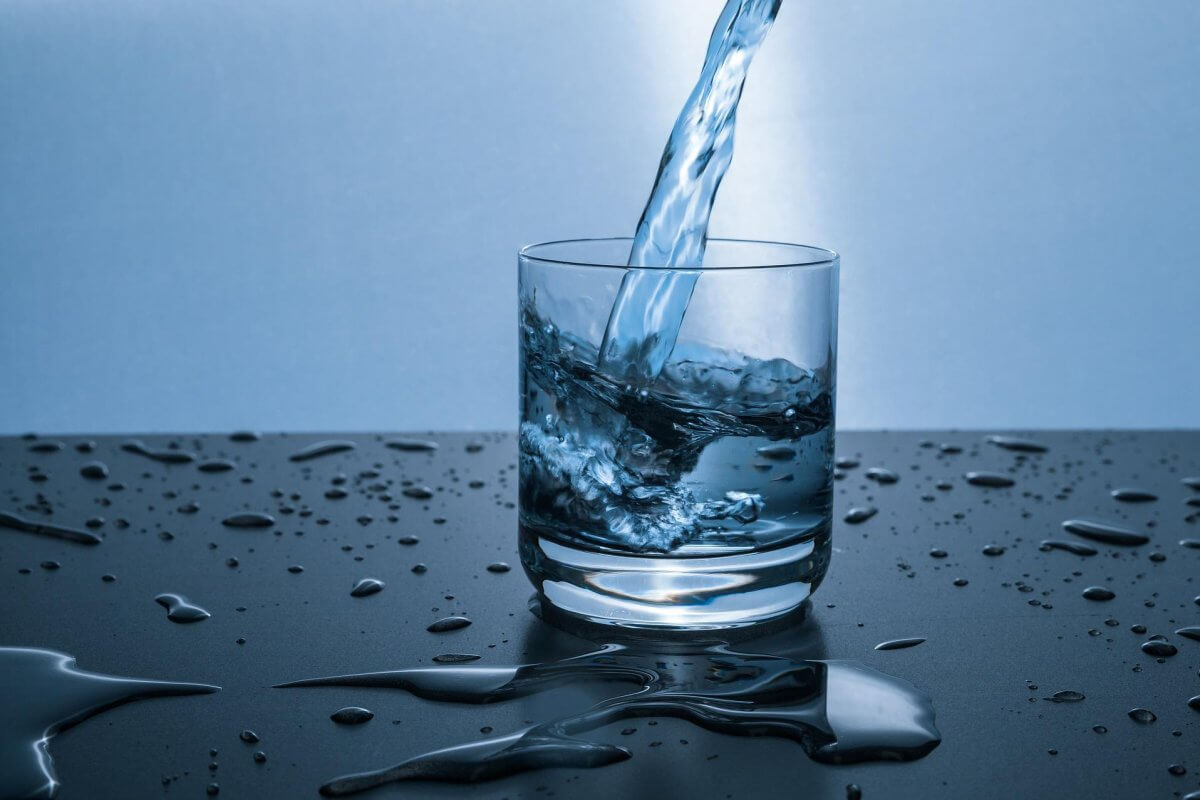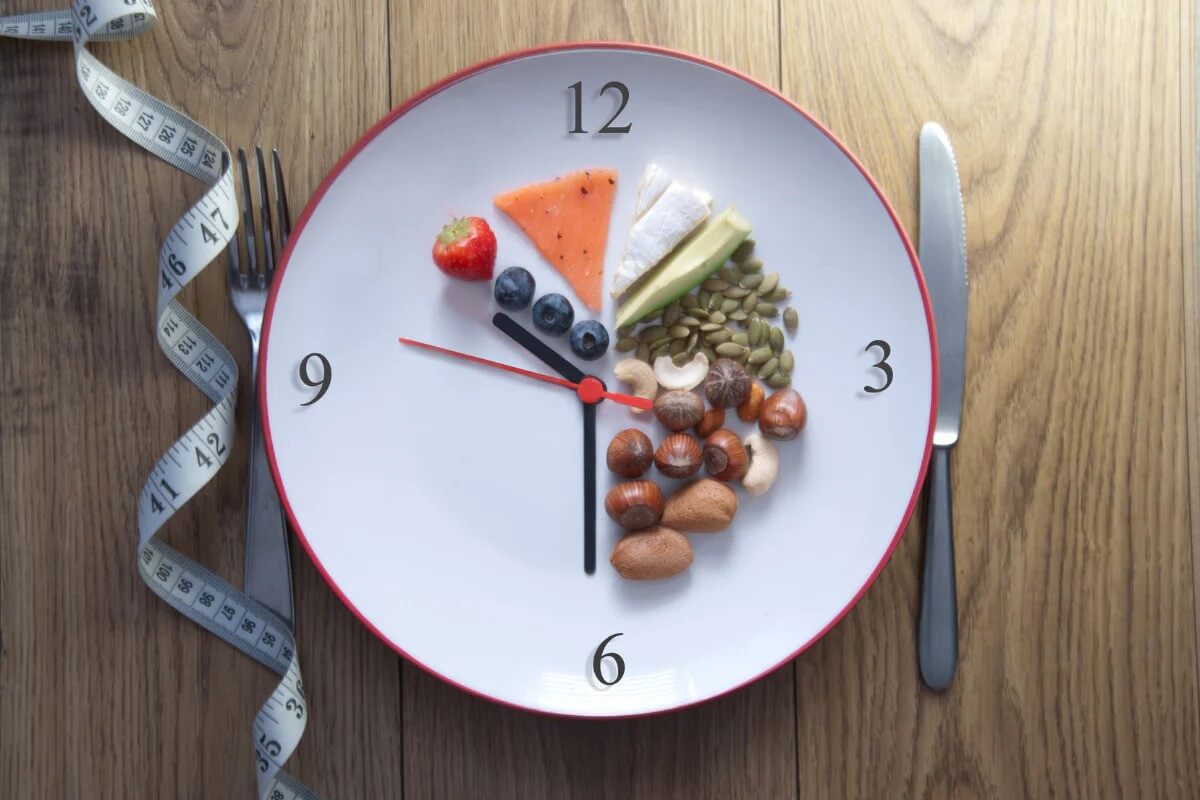When making the choice to fast, there’s a lot of thought and research that goes into it. After all, you want to ensure you’re doing the best thing for your body. One type of fast that you’re very much considering is the water fast. What is water fasting?
When on a water fast, the only thing you consume is water, no food. This form of intermittent fasting may last consecutively for 24 hours to 72 hours, or you can space the fast out little by little for upwards of 30 days or more.
In this extensive, comprehensive guide, we’ll answer all the questions you’ve ever had about water fasting. From more about what it is, its benefits, when to water fast, how to prepare, and even some warning signs when fasting, you’ll be completely educated on the topic. If you decide you want to go on a water fast in the future, you’ll know just what to expect and how to handle it.
What Is Water Fasting?
First, let’s delve into what water fasting is in more detail. As we explained in the intro, when you begin a water fast, all you will drink while fasting is water. There is no juice, milk, or other beverages consumed under this type of fast. You must also forego food until the fast is over. In simpler terms, you get no calories on a water fast.
This is a form of intermittent fasting, in which you spend certain hours or days on the fast and then others eating more regularly.
There are many reasons people may consider a water fast. For some, it’s necessary for medical or even religious reasons, something we’ll discuss later in this guide. Others may want to lose weight or cleanse their system, resetting it so it may function more healthfully.
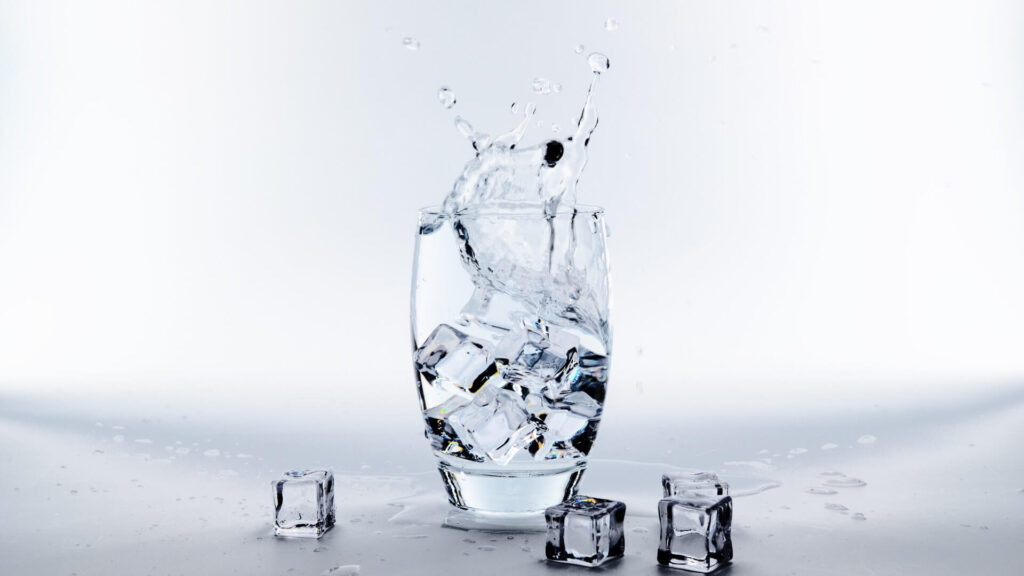
What Is Dry Water Fasting?
If you’ve tried a few water fasts successfully, you might be interested in the next fasting challenge, which would be dry water fasting. Under this type of fast, you consume no food as well as no water. Since your body needs both for long-term survival, dry water fasting is done in even briefer intervals than standard water fasting if fasting consecutively, such as 24 hours straight.
There are two types of dry water fasts: hard and soft. With a soft dry water fast, while you’re still not drinking any water, you are allowed to use it. You can wash your hands with soap and water, bathe in water, and brush your teeth with water.
If you’re undergoing a hard dry water fast, then the rules are even tighter. You cannot have contact with any water at all until your fast is over. That means brushing your teeth dry and refraining from showering for the duration of the fast.
New intermittent fasters will want to begin with a standard water fast before moving on to soft dry water fasts. It takes the most discipline and experience to get through a hard dry water fast, so don’t jump immediately to that one.
What Are the Benefits of Water Fasting?
If going a full day, perhaps longer without food seems difficult to you, know there are a lot of benefits of water fasting. Here is an overview for your perusal.
Lower the Risk of Several Chronic Conditions
If you want to ward off heart disease, cancer, and diabetes, intermittent water fasting may be the way. In a 2013 study from Science Translational Medicine, it was proven that water fasting could possibly inhibit the growth of cancer cells. However, this was only the case in animals, at least as of this writing.
A Nutrition, Metabolism & Cardiovascular Diseases report, also from 2013, published some interesting findings. When 30 participants, all adults in good health, fasted and drank only water for 24 hours, their triglycerides and cholesterol in the blood decreased. Having high levels of both could contribute to heart disease.
Another great way to stay healthy through water fasting is by inducing autophagy. This is a concept we’ve covered on this blog before, but here’s a recap.
During autophagy, you trigger your body into getting rid of old, useless parts of cells. This could be another means of preventing the development of heart disease, Alzheimer’s, and even some cancers.
Reduce Blood Pressure
While the link between water fasting and a low blood pressure is not as strong, there have been some studies proving what drinking nothing but water can do. One of these comes from the Journal of Alternative and Complementary Medicine.
Nearly 70 people participated in the study. All were on the verge of having high blood pressure. With a medical team in tow, the participants went on a water fast that lasted about two weeks. After wrapping up, the researchers tested the blood pressure of the participants.
Almost everyone who was involved in the study, or 82 percent, had a blood pressure that was now within a healthier range.
Other studies exist that prove the same, which only strengthens the idea that water fasting could lower your blood pressure.
Boost the Immune System
A healthier immune system can ward off sickness so you’re not sidetracked. One way you may be able to fortify your immune system is through water fasting. 2014 research from Cell Stem Cell reviewed the effects of fasting on the immune system. The data reports that through water fasting, it’s possible to decrease your white blood cell count.
This tells the immune system to make more white blood cells, also known as lymphocytes. These stronger cells make your immune system stronger as well, especially once you start putting food back into your system post-fast. That said, the researchers do suggest that you water fast for at least two days to reap the above benefits.
That’s because you must remove all glycogen stored in the body, forcing your body to spend this energy before new white blood cells can be born.
Support Weight Loss
One of the most appealing aspects of water fasting by far is the likelihood of losing weight. While we’ll talk later about how many pounds you can expect to shed, weight loss will almost surely occur.
One reason for that is simple. Water has no calories. When you restrict your body of calories like this, then of course some pounds will come off. To lose weight, you need to consume fewer calories than your body burns, and you’re certainly doing that.
Improve Leptin and Insulin Sensitivity
Longer-term weight loss effects could be felt by water fasting as well. Your body’s metabolism is regulated by two chief hormones, leptin and insulin. That feeling of fullness you get after a good meal is attributable to leptin, while insulin takes bloodstream nutrients.
Many studies, including this one from Gerontology, note how through water fasting, it’s possible to increase your sensitivity to both insulin and leptin. The higher your sensitivity, the greater the effectiveness of these hormones. This can reduce your obesity risk, sharpen hunger signals so you don’t overeat, and control your blood sugar better.
Fasting and Longevity
The combined effects of the above water fasting benefits could be huge for your health. In lowering your risk of getting many serious diseases, you could expand your lifespan. The same is true of avoiding obesity, as your chances of developing coronary heart disease, heart failure, and cardiovascular disease go up if you’re obese.
This 2018 article from USA Today cites data from the National Institute on Aging. That organization partnered with Louisiana’s Pennington Biomedical Research Center and the University of Wisconsin-Madison to study the effects of fasting for a longer life.
The researchers found that by going longer without eating, a group of mice lived longer when compared to other mice that didn’t fast as often. It doesn’t seem to matter as much about the calories or even the foods the mice ate, just how often (or not) they consumed food.
While this data doesn’t support water fasting specifically, it does show that intermittent fasting could potentially impact our lifespans for the better.

How to Do Water Fasting?
Alright, you’re convinced! You’d love to try, but you’re not sure how to start water fasting. In this section, we’ll clearly lay out all the steps to follow for a safe, successful first fast.
Step 1: Choose When You’ll Fast
Before you cut out any foods, you want to plan when the fast will happen. It’s better to pick days when you won’t be so busy, such as a weekend. You may feel sluggish the first few times on a water fast, so you don’t want to begin on a jam-packed day with little downtime.
Step 2: Determine the Duration of the Fast
Since you’ve never done a water fast before, we recommend keeping the first one to no more than 24 hours. Remember, this doesn’t need to be consecutive, but it can be if you want.
Even though you’ll spend at least seven or eight of those hours sleeping (or at least, you should), the 24 hours will pass by quite slowly when you’re consuming nothing but water. Don’t deter yourself from future fasts by scheduling one that’s too long.
Step 3: Prepare Your Body
To go from eating full-fledged, solid meals to nothing but water can be quite jarring on your system, which is why we recommend you don’t do that. Instead, gradually ease your way into your intermittent fasting habits.
In the weeks before your fast (yes, that’s weeks, not days), cut down on what you eat little by little. Begin by removing processed foods from your diet, then caffeine, then sugar. The week of your fast, transition to mostly vegetables and fruits, as these are water-based. You can eat other foods as well, but your portions shouldn’t be significant.
Step 4: Start the Fast
You’re now ready to begin fasting. From the time you wake up until you go to bed, consume water regularly throughout. You will undoubtedly get hungry, especially during that first water fast when your body has never gone so long without food. When you feel those hunger pangs, just fill up a glass of water. One or two of them should quell your hunger.
Step 5: Reintroduce Foods After the Fast
Once the chosen amount of time has passed, your fast is considered over. You got through your first water fast, so congratulations are certainly in order. Now that you’re done consuming nothing but water, at least for the time being, you should not just jump right back into your old diet.
We’ll talk more about this later, but you want to begin reintroducing meals gradually. Just like you slowly erased parts of your diet, you can tack them back on in the days and weeks to come. In fact, you might not even start with a solid diet, but a liquid one consisting of vegetable and fruit juices. Then, within a few hours or even a day, you might upgrade to veggies and fruits, then more solid foods.
It’s also recommended that you schedule an appointment with your doctor both ahead of your water fast. Taking certain medications may preclude you from water fasting, and you want to know that before starting. The same is true if you have one or more of these conditions:
- You’re pregnant or were recently pregnant and still breastfeeding
- Paralysis
- Organic brain syndrome
- Alzheimer’s disease
- Heart conditions such as cardiomyopathy, issues with your heart valve, heart attacks, atrial fibrillation and arrhythmias, and heart failure
- Poor circulation or other diseases that affect the vascular system
- Lupus
- Advanced cancer
- Infectious diseases such as tuberculosis or AIDS
- Thyroid disfunction
- Alcoholism
- Advanced liver disease
- Advanced kidney disease
- Enzyme deficiencies
- Diabetes
- Hypoglycemia
- Bulimia, anorexia, or other eating disorders
After your intermittent fasting has wrapped up, see your doctor again just to check that your health is in the best shape it can be. Then, if you enjoyed the experience, feel free to try another water fast. With time, you can expand the length of your fast, working your way up weeks of water fasting.
How Much Water Should I Drink While Fasting?
When not fasting, you’re well-aware that you should consume eight daily glasses of water that are at least eight ounces each. Now that you’re about to begin a water fast, you assume you’ll get more than those eight glasses, but how much water is enough?
It’s true that you do want to increase your consumption, but as for how much water is enough, that can depend. Women should try to up their daily water intake by a single glass so they get nine glasses, or about 2.2 liters every day. Men need far more water, up to 13 glasses or roughly three liters daily.
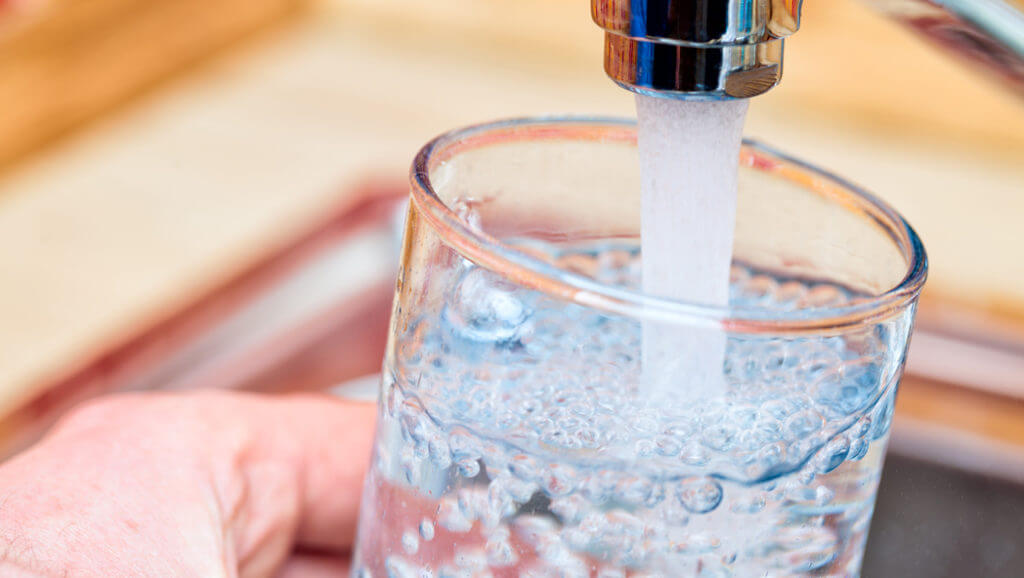
Avoid chugging the water. You don’t even have to complete a whole glass in one sitting. Instead, space it out. While it’s okay to add that extra one or two glasses if you’re feeling especially puckish, there is such a thing as drinking too much water. While your kidneys can process between 20 and 28 liters of water daily, if you exceed that to 27 to 33 ounces, that might be too much for your body.
You could then develop symptoms of hyponatremia, a condition in which your blood’s sodium has decreased way beyond its normal limit. It’s recommended that every hour, you consume between 0.8 to 1.0 liters of water and no more.
With marked bottles and smart water bottles on the rise, it’s quite easy to track exactly how much water you’re drinking by the hour and by the day.
Can You Drink Water When Intermittent Fasting?
While water fasting is a type of intermittent fasting, there are other intermittent fasts besides this one. Let’s talk about a few of these now and whether you can drink water when doing any of these fasts.
24-Hour Fast
As the name suggests, this type of fast lasts for 24 hours at a time. The 24-hour period doesn’t have to be from midnight one day to the next. You can start your fast in the morning at breakfast time to the next day at the same time or even in the afternoon to the next afternoon, whatever works for you, really.
While you’re not eating during one of these fasts, there are several approved beverages. These include zero-calorie sweetened drinks, black coffee, tea, and water. All these drinks can ward off hunger pangs and make your fast easier to get through.
Time-Restricted Eating
There are two popular time-restricted eating fasts, the 14/10 and 16/8 methods. Under the 14/10 method, you’re allowed to eat for only 10 hours. Then, you must spend the remaining 14 hours of the day fasting. The 16/8 method is even stricter then, as you only get eight hours of eating and then 16 consecutive hours of fasting.
Ideal for beginners, time-restricted eating also allows you to sip beverages during those hours you’re not allowed to eat. These include any noncaloric drinks such as coffee and water.
Alternate Day Fasting
While it sounds like the 24-hour fast, alternate day fasting isn’t quite the same. This time, your fast would run from midnight to midnight, as you’re eating one day and then fasting the next. The fasting here is a little more relaxed, as instead of going a full 24 hours without food, you’re permitted to eat, but only about 25 percent of what you typically consume. For example, you may consume 500 calories a day and that’s it.
Since you’re eating healthfully every other day and then limiting your calories on the days you do fast, you could see weight loss. If you wanted to not eat every other day, that’s another way to do this fast, although that’s not a great idea for first-timer fasters.
Seeing as how you can eat when alternate day fasting, it would reason to assume water is fine, too. The same would be true even if you forewent food for the 24 hours of the fast.
Twice a Week Fasting
More commonly known as the 5:2 method, twice a week fasting is very much akin to what we just described in the paragraphs above. You have two days a week where you fast, and on those days, you stick to no more than 500, maybe 600 calories. This is again roughly 25 percent of your recommended food intake.
Then, for five more days of the week, you’d eat healthfully. The same rules with consuming water would apply.
When to Stop Water Fasting
Since water fasting doesn’t follow quite as tight timelines as the other intermittent fasts we just discussed, you might not know exactly when to stop. While it will depend on your level of experience, you never want to exceed 72 consecutive hours. The only exception would be if you water fasted with the guidance of a medical professional.
For those new to fasting, we recommend doing maybe a 12-hour fast, then working your way up to 24 hours. You can also fast a few hours at a time daily. More experienced fasters can test themselves through weeks-long fasts, which could be one of your most difficult intermittent fasts yet!
How Long Does It Take to Get into Ketosis When Water Fasting?
You’re eager to lose weight through a water fast, but did you know that first means you will enter a state of ketosis? What is ketosis, you ask? Related to metabolism, ketosis occurs when our body begins burning through our stored fats. To reach this point, we must not have any leftover glucose to use for energy. If we do, then our body burns this instead.
When your body uses stored fats to provide energy, you develop ketones, a type of acid. Ketones, also referred to as ketone bodies, come from the liver. As your blood accumulates more ketones, you usually pass them through your system as urine. Ketones are a good sign that your body is relying on fat for energy and not glucose.
While some people go on a ketogenic or keto diet to enter ketosis, it’s also possible to do so through a water fast. Since water is noncaloric, it shouldn’t take you any longer to begin ketosis than it would with any other intermittent fast. That’s about two days, but it may be twice that for some people, so four days. It’s more likely to be a lengthier process if your body has an excess of glycogen in reserve, as it will have naturally use all that first.
How Much Weight Can You Lose While Watering Fasting?
You’ve spoken to your doctor and you’re approved for a water fast. You’re so ready to get started, but you just have one question. How soon do you see results from water fasting? You’re hoping to lose weight quickly, and you’re wondering how likely that may be.
According to a long-standing report published in the Western Journal of Medicine, if your water fast lasts between 24 and 72 hours, for every day you fast, you could shed up to two pounds. That’s up to six pounds if you do a 72-hour water fast.
What weight are you losing exactly? It’s a combination of muscle mass, carbohydrates, and water weight.
Okay, so you know you shouldn’t do a consecutive water fast for more than three days, but what if you fasted several times in a week in shorter increments? How much weight could you lose in a week water fasting? Well, it would depend on how long you’re fasting.
As an example, let’s say you do a sort of alternate day fasting, where you drink only water one day and then eat the next. If you started on Sunday and fasted on alternating days, that would mean you fasted four times that week. You could multiply the four days by two pounds and expect about eight pounds of weight loss just from water fasting.
That said, unless you’re eating less than the calories your body burns on those days you’re not fasting, then the weight loss won’t stick. You’re better off fasting for two-day periods then, taking a day or two off in between.
What fuel does the brain use when water fasting? If you recall those ketone bodies, they play an important role in keeping our brains healthy when we deprive it of calories. If you go on a three-day water fast, up to 30 percent of the brain’s energy requirements are sourced from ketone bodies alone. On medically supervised four-day water fasts, that number increases to a whopping 75 percent.
Not only is ketosis important then in triggering our weight loss during intermittent fasting, but it keeps our brains running, too.
How to Deal with Hunger While Water Fasting
You’ve just started your first water fast, and so far, so good. Within a few hours, though, you get hungry. You go to open the fridge before you remember you can’t eat for the next day or so.
As the day goes on, the hunger becomes worse and worse. Soon, eating is all you can think about, but you still can’t do it for a while longer. How do you survive the hunger pangs without losing your mind?
Make sure you do the following.
Drink!
You’re on a water fast, and so you’re supposed to consume water anyway. When you feel a little extra hungry, fill up your glass and start sipping. While water cannot substitute for a meal, drinking enough can provide you with a feeling of fullness. Just make sure you’re topping off at about nine glasses a day for women and up to 13 for men.
Distract Yourself
The more your mind focuses on how hungry you are, the more you’ll feel like you’re starving. What’s best is to get your mind off of things. Put on a favorite album of yours, watch a movie, or do something a little more immersive but not super energy intensive. You can take a walk, play a video game, hang out with friends or family, or any activity you like that requires your active participation.
Before you know it, those hunger pangs will disappear into the background. You’ll still feel them, but they won’t be all you’re thinking of anymore.
Get Plenty of Sleep
You may feel more fatigued during a water fast, and that’s because you’re not putting calories, or energy into your body. If you need a bit of extra sleep, then please don’t deprive yourself. Not only does sleeping make your fast go by well, faster, but it also gives you a much-needed reprieve from that strong sensation of hunger.
If you’re having a hard time getting any shuteye, know that that’s normal during your first few fasts. The good thing is it doesn’t last forever. Data has discovered that you may have fewer leg movements and wake up in the middle of the night more seldom when sleeping on a fast.
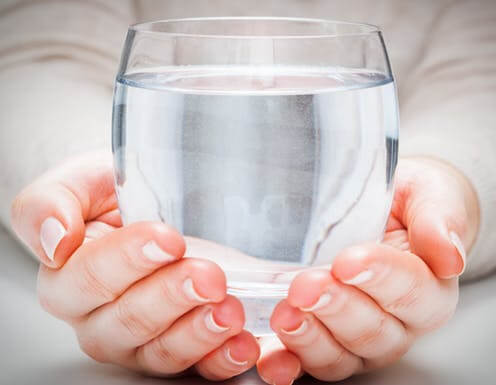
What to Expect When Water Fasting
Besides hunger and having a hard time falling asleep, what else might you experience on your water fast? This is a little harder to say, as just because one person has certain side effects during a water fast doesn’t mean someone else will.
It’s still a good idea to know what you may be in for, so here’s a list of just that.
Headaches
Late into your first day of your water fast, your head begins aching. You try ignoring it, but within a few hours, your temples are pounding. Headaches when water fasting are common. Your blood sugar has dropped since you’re no longer supplying your body with new calories, which then leads to that awful head pain.
Mental Sluggishness
Your brain is so used to you eating on the daily then when you stop, mentally, things can begin to shift. You may feel almost distracting urges to eat. As the fast continues and you only consume water, those urges may get stronger.
Also accompanied with this is sluggishness. Without feeding your body calories, your clarity, focus, attention, and memory may be temporarily impacted.
Lightheadedness
By the second day of your water fast, if it goes on that long, it’s normal to feel a little dizzy or lightheaded. Again, this comes down to your body not having new calories for energy. We recommend you sit or lie down, take a break, and even nap if you can. The wooziness should wear off from there.
Sore Muscles
If you’ve worked out a few days before starting your water fast, then don’t be surprised if your muscles are achier than usual. Yes, this is even if you exercised more than 24 hours ago. With no calories entering your body, your usual rate of muscle recovery gets slowed, leaving you with more body aches and pains.
Extreme Fatigue
Is it harder than usual to keep your eyes open? It’s not just your imagination. You already know your energy supplies are near zero, so it’s going to be a lot harder to do everyday things while intermittent fasting. You may struggle walking from one room of your home to the other.
As we said before, sleep if you can when you have to. It will help offset some of the fatigue.
Water Fasting for Spiritual or Medical Reasons
In this section, we want to talk specifically about water fasting for reasons outside of weight loss. You may have a medical test scheduled and you need to fast the day before. For some religious occasions, such as Ramadan, fasting is also common.
The rules associated with water fasting may be somewhat different for these purposes, so make sure you know them before you begin your fast.
Can You Drink Water When Fasting for Bloodwork?
It’s common to get bloodwork as part of a checkup, and sometimes your doctor may even request a fast ahead of the test. Anything that alters your digestion and blood levels could produce inaccurate test results, meaning you’d have to take the test again. Food is definitely out of the question.
Usually, bloodwork fasts are a lot shorter than your standard intermittent fast. Instead of fasting for 24 hours, you may have to go as little as eight hours without food. In some cases, it’s 12 hours, but that still goes by quicker than you think when you’re asleep for most of it.
When your doctor says no drinks or food, water is usually excluded from that. To be on the safe side though, double-check during your appointment that you can drink water.
Can You Drink Water When Fasting for Glucose Test?
If you have type 1 or type 2 diabetes, then you test your blood glucose often. Your doctor may request a more formal glucose test, which may again necessitate a fast. This is probably going to be a shorter one, lasting for about eight hours. You can sleep right through the fast no problem, but what if you get thirsty?
Like with a bloodwork test, you can drink water ahead of your blood glucose test. Refrain from consuming any other beverages, though.
Can You Drink Water When Fasting for Religious Purposes?
What if you don’t have any medical tests on the schedule, but you’re observing a religious occasion?
During Ramadan, a Muslim observance that lasts for a month, the fasting rules are very severe. You cannot consume water or eat food while the sun is up. The only exception would be if you’re seriously dehydrated.
Some people of the Christian religion also follow Lent, which is a 40-day observance. While you don’t fast for 40 days, many people give up a certain food, such as meat, and are only allowed to eat this at certain times for the duration of Lent. Water would definitely not need to be restricted if you’re observing Lent.
How to Keep Muscle While Water Fasting
If you recall from earlier in this guide, we mentioned that part of the weight you lose during a water fast is from lost muscle mass. While you may want to slim down during your fast, you don’t want your well-defined muscles to disappear. How can you maintain your musculature while dropping pounds, too?
According to this article from Peter Attia, he’s fasted for a week at a time and did daily resistance training to keep his muscle mass. Attia mentions that when our bodies make more ketones, we also increase our production of beta-hydroxybutyrate or BOHB, an organic compound that can get valine, isoleucine, and leucine moving in our systems. These are amino acids with a branch chain that maintain our lean tissue and protein levels.
Now, you may wonder how on a water fast your body can do anything with your muscle protein, especially synthesizing it. The answer lies in the boost of hormones we get from intermittent fasting, namely adrenaline and growth hormone. At the same time, our glucose and insulin levels deplete.
The autophagy and fat oxidation that occurs spares our muscles. This is because, when fasting, our body knows that we’re starving. It may preserve our muscle cells compared to other cells with a faster turnover.
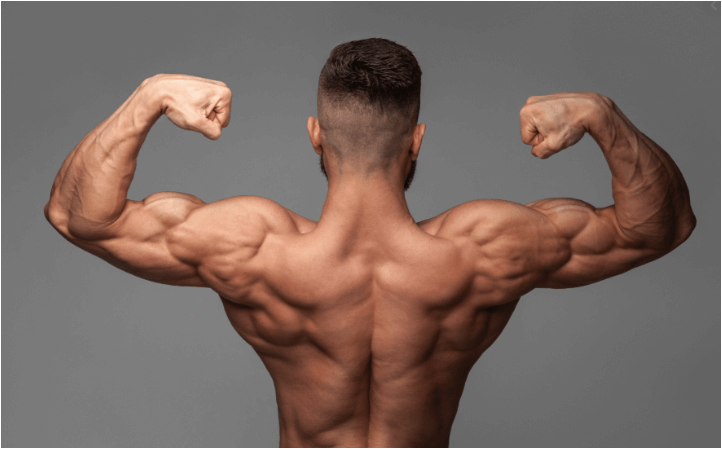
Can You Exercise When Water Fasting?
All this talk about muscles brings us to another good question. If you’re not consuming any calories, such as on a water fast, is it a good idea to exercise?
Yes, you can, and in fact, you should! As we mentioned, your human growth hormone or HGH hormones increase, allowing for the synthesizing of muscle proteins. The lack of insulin spikes can also keep your muscle mass intact.
You may even be able to increase the amount of fat you burn and derive some natural energy from the experience.
While all this sounds great, you shouldn’t hit the gym with all the intensity you would if you were on a regular diet. Remember that lightheadedness and exhaustion are two main side effects of water fasting, as is mental fogginess. If you’re not comfortable with exercising and you’re only on a water fast for 24 hours, then by all means, don’t.
What if you do want to get a bit of fitness into your day? It would be a very good distraction from your hunger, after all. It’s recommended you stick to light weightlifting and low-intensity cardio. As Peter Attia proved, this preserves your muscle mass while triggering fat burning, giving you the best of both worlds.
The Potential Dangers and Risks of Water Fasting
While we’d never deny the benefits of a good water fast, we also can’t ignore that there are potential downsides. Like we discussed in the section about water fasting side effects, some people may experience stronger, even more dangerous symptoms while water fasting. Others won’t.
This is why we always advise you to see your doctor ahead of your scheduled water fast. If you’re on a medication or have a condition that prevents you from fasting, please don’t push ahead anyway. You may be able to do a medically supervised water fast, but that would be your only option.
Here are some warning signs that will tell you it’s time to stop water fasting ASAP.
You May Feel Dehydrated
Even those who observe Ramadan, which has limiting rules on when you can eat and drink, are supposed to stop fasting if they’re dehydrated. That’s because dehydration is a very serious health issue that could lead to death if it goes on for long enough.
How do you know if you’re dehydrated? Feeling thirstier than usual is one sign, as is dizziness, skin dryness, headaches, a low volume of urine, dry mouth, and exhaustion. These are all considered mild dehydration symptoms. If you have a drink at this point, you’ll be fine.
That said, if you’re on a hard dry fast when you have to avoid water, then you may let dehydration go on longer than it should. In that case, the symptoms may become more severe, such as passing out, irritability, confusion, sunken eyes, fast breathing and heartrate, and not having to urinate.
It May Worsen Some Health Conditions
Another reason why it’s better to be a picture of health before starting a water fast is that certain medical conditions can be made worse by skipping meals. Take diabetes, for instance. You need to manage your blood sugar with this condition, which you can do by eating certain foods. By only consuming water, your blood sugar will plummet.
This puts you at risk of hypoglycemia, a condition when your blood glucose is lower than your insulin. If you have hypoglycemia, you may experience symptoms like headaches, nervousness or anxiety, moodiness, hunger, sweating, dizziness, and shakiness.
Like dehydration, hypoglycemia can become more severe if left untreated. You may fall unconscious, have seizures, develop blurry vision, or experience changes in your behavior. It almost seems like you’re drunk, but you’re not. Hypoglycemia at this point can be fatal, so it’s very important to not let it get that far.
Orthostatic Hypotension
Your blood pressure can also start dropping, both your diastolic blood pressure and your systolic blood pressure. If the former reaches 10 millimeters of mercury (mm Hg) and the later 20 mm Hg, then you may have orthostatic hypotension.
Accompanied by the blood pressure drop will be nausea, confusion, fainting, weakness, blurred vision, and dizziness, especially upon standing. It is possible to die from this condition as well.
What Should You Eat After Water Fasting?
In our steps on how to successfully water fast, we talked about reintroducing foods back into your diet. We wanted to discuss this in more detail now, because it’s very important you don’t just eat whatever upon wrapping up your fast.
Earlier, we recommended you begin shrinking your food quantities as the day of your fast approached. You could have even began drinking caloric beverages like smoothies or fruit juices in preparation for your liquid diet.
Once your water fast ends, switch over to more liquids, but this time with calories. Orange juice is a good choice, as is lemon juice if you can stomach it. Stick to just those liquids for most of your first day post-fast, maybe even the whole day. After all, there’s always a chance you might not feel overly hungry. This is normal, at least at first.
By later the first day or into the second day, switch over to solid foods. You want to keep the quantities very small, but make sure you’re eating frequently, at least on a two-hour basis. Select foods that digest easily and won’t upset your stomach, such as cooked vegetables, vegetable soup, yogurt, and raw fruit.
Then, move on to more substantial foods, including cooked beans and grains. If your body is still good to this point, then reintegrate eggs, dairy, meat, and fish into your diet if that’s what you eat. By this point, you should be free to consume just about any foods with no ill effects.
Water Fasting Tips
To put you in the best position for success while water fasting, here are some helpful tips to follow:
- Start small and work your way up: If you’ve never fasted before, it’s way out of reach to assume you can go two days without food. Start with a shorter water fast, as it should be more than enough if you’re inexperienced.
- Know when to stop: Not only should you cease your water fast after your allotted hours are up, but quit anytime you feel severely sick or dehydrated. You may be fasting for your health, but sometimes pushing through is worse for you than you realize.
- Have a plan to stay busy: It can be hard to come up with things to do when the effects of a water fast have taken hold. Instead, plan ahead for how you’ll fill your time so the hunger doesn’t bother you so much.
- Remember your goals: It can get hard to keep drinking nothing but water, and you will very likely want to quit. Make sure you have your goals written down and hung up where you can see them. Whether you want to lose weight, reset your system, or just feel better, remembering why you’re water fasting will keep you motivated to finish.
Can Water Fasting Kill You?
In our warning signs section, we talked about three conditions that can occur due to water fasting. These are hypoglycemia from too-low blood sugar levels, a drop in blood pressure known as orthostatic hypotension, and dehydration. All can be deadly, so yes, it’s possible for water fasting to kill you.
Once more, we’ll underscore the importance of visiting with your doctor before your fast. Ask for a physical and checkup. Talk about the medications you take regularly and ask if these should prevent you from fasting.
See your doctor after the fast, too, just to make sure you’re not at risk of the above conditions or any other from your fast.
How Long Was the Longest Water Fast?
While you won’t break any longevity records during your first water fast or two, you may be curious who has fasted the longest. That would be a man, who, at 27 years old, went on a water fast for 382 days. This happened back in 1971. The man also took supplements, but he mostly drank water.
During the year plus the man fasted, he started at 456 pounds and whittled his way down to 180 pounds.
How Long Can a Human Survive Without Food?
Water fasting may have always intrigued you, but the thought of going so long without food not only seems difficult, but dangerous. Can’t people die if they don’t eat?
For sure, but humans can go a surprisingly long amount of time without food, at least 30 to 40 days. However, to prolong survival, it’s important to maintain one’s hydration, which is possible with a water fast.
How Long Can a Human Survive Without Water?
If you’re committing to a hard dry fast, you may wonder why there are so many restrictions around this means of intermittent fasting. It’s because the human body has far less tolerance for living without water than it does food.
Once deprived of water, you will live for about seven days, give or take. How long you may survive depends on how hydrated you were to begin with as well as the temperature of your current environment.
Conclusion
Water fasting is a type of intermittent fast that can last for hours and sometimes even weeks. While you’re not permitted to eat, you can drink lots of water for the fast. Water fasting can be incredibly good for your body, but there are downsides to be aware of as well. Through the information in this guide, you can make a smart, educated decision about whether water fasting suits your life. Best of luck!
Other articles:
Electrolytes and fasting: All you need to know
Sleep Testing Sydney: Complete Guide to Better Sleep Health

